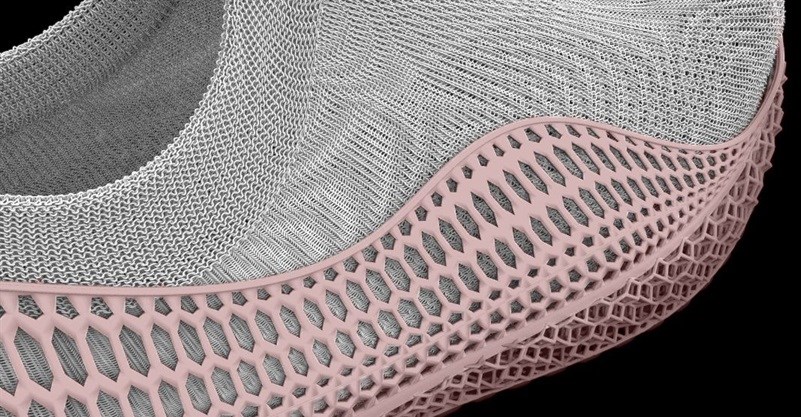#DesignIndaba2018: The next generation of fashion is biology

Yes, fashion is a wonderful thing, it’s the way you choose to present yourself to the world and it can be whatever you want it to be, but Gosiewski recognises that it is also toxic and wasteful and these two factors combined make it the second most polluted industry in the world.
The clothes you are wearing today are destined to feed the fill as a consequence of the current fashion system.
On her journey as a designer, she became more and more aware of this issue and so she wanted to move away from the current system. In so doing, she began exploring material alternatives and became interested in where the materials were coming from. “I became interested in natural fibres, such as wool, and I began implementing them into my work. However, I realised I was still contributing to the same system. Generally, the products we produce today last 100s if not 1,000s of years. We select our materials, we make clothes, we buy clothes and then we throw them out when we no longer want them. There’s a disconnect here and it just doesn’t make sense.”
“We select our clothes, buy our clothes and then throw them out when we don’t need them anymore” @aleks_go12 So she set out to find a solution! #designindaba pic.twitter.com/Y9MDjwPfrC
— Design Indaba (@designindaba) February 21, 2018
AlgiKnit grew out of BioEsters, the winning team from the 2016 BioDesign Challenge and it has since continued to pursue a material-driven design approach to biopolymer-based materials with support from FIT.
They started looking at materials people were already working with, such as bacterial cellulose. They grew a sheet of it, dehydrated it and laser cut a tank top out of it, but this material didn’t have the properties they were looking for.
They then discovered a seaweed called kelp, which happens to be one of the fastest growing organisms, available globally, sourced sustainably and there is plenty of it, she said. “So, we took kelp and combined it with a bunch of other organic compounds to create a series of gels – some of them worked and others not so much, but for the ones that did, they had favourable properties that made them mouldable and easy to work with.”
Initially, like the bacterial cellulose, they made thin films to represent textiles, but this didn’t work, so they looked further into textiles and realised that as they’re made up of yarns and fibres, they would transform this material into a yarn of sorts. Some of their first samples resembled dry ramen noodles, she said. "They were brittle and useless or they had no structural integrity and just completely fell apart.” But, after much iteration, they found something that worked. “We were able to produce thick and thin yarns, we were able to machine it and hem it and we even experimented with sustainable dying methods. We went from dry ramen noodles to a material that actually worked.”
This material was durable and flexible and so they developed a process that allowed them to produce enough of it to create a product, so they knitted a tank top, which proved that this material had potential. They widened their scope and envisioned their material in other forms, such as foams, films and 3D-printed structures, and with that, they designed a shoe concept. Enter AlgiKicks, a revolutionary sneaker redefining the way products are designed and recycled. “The beauty of this product is that when it is worn out or you no longer want it, it can be broken down by microorganisms and the nutrients can be reclaimed to feed the next generation of product."
“At AlgiKnit, we are preparing a new era of design thinking. By redefining current systems and creating materials that follow biology, we hope to inspire others to be part of this conversation. Join us in the transformation of the apparel ecosystem,” she concluded.
To join this conversation, go to AlgiKnit.com, follow them @algiknit on Twitter, Instagram or Facebook. Also keep an eye on our Design Indaba special section for our coverage throughout the Festival, which will all be packed in our Design Indaba newsletter, so also look out for that on Monday.

About Jessica Tennant
Jess is Senior Editor: Marketing & Media at Bizcommunity.com. She is also a contributing writer. moc.ytinummoczib@swengnitekramRelated
TFG halts new store openings as power woes bite 12 Jun 2023






































